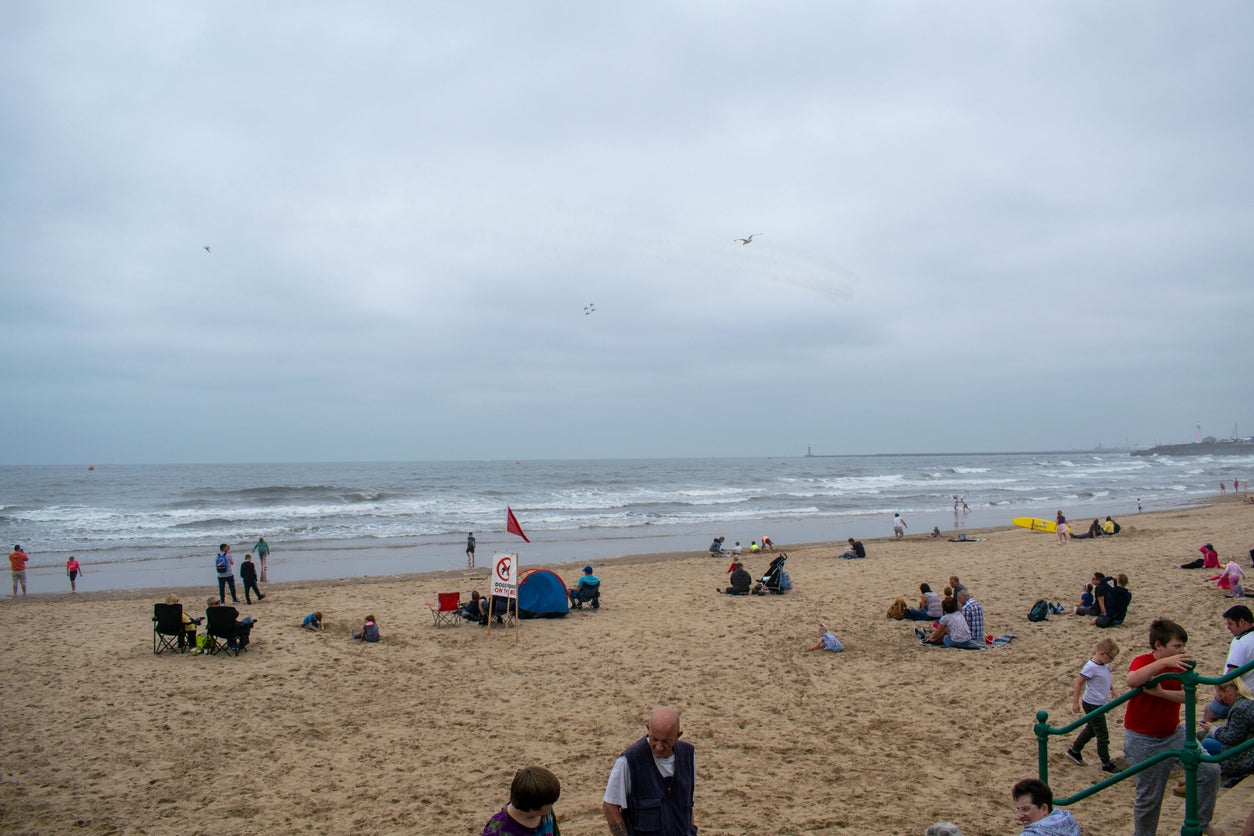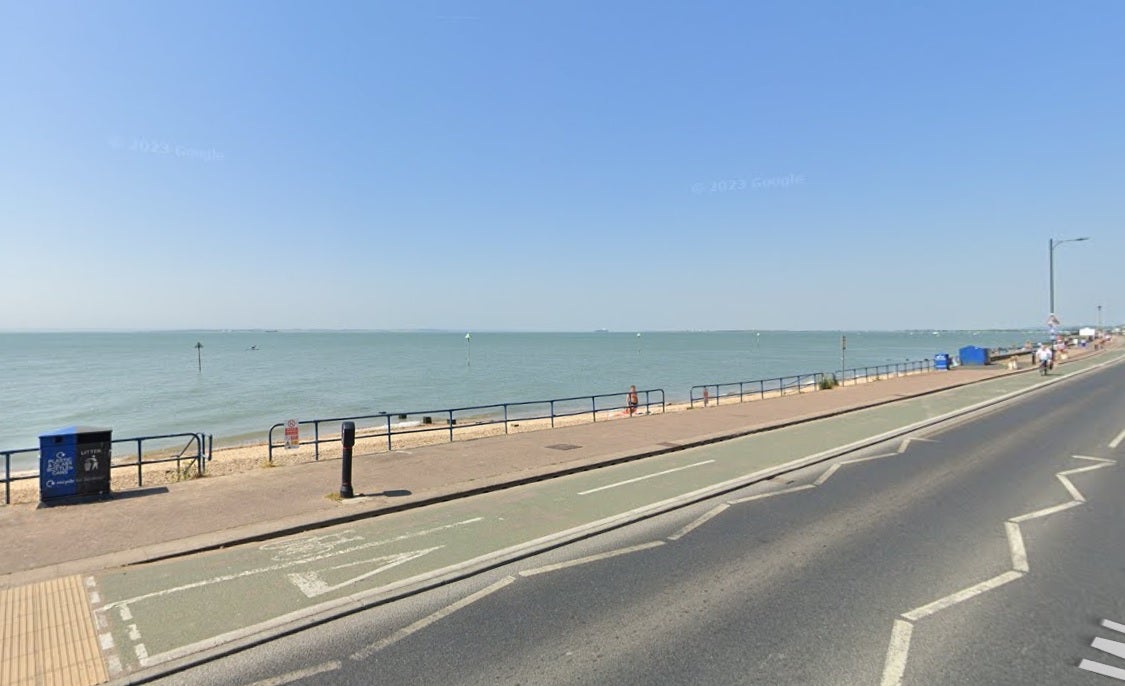Unsafe levels of vomiting and diarrhoea-causing bacteria E coli found at Blue Flag beaches
Exclusive: Unsafe levels of vomiting and diarrhoea-causing bacteria E coli found at more than 10 per cent of the country’s best beaches
Unsafe levels of the vomiting and diarrhoea-causing bacteria E coli have been found at more than 10 per cent of blue-flag beaches, The Independent can reveal.
Analysis of official data shows that eight out of 72 of the country’s best beaches recorded high levels of E coli on at least one occasion last month.
Allison Ogden-Newton OBE, chief executive of the Keep Britain Tidy charity, called on the next government to treat cleaning up the country’s rivers and coastal waters as a “matter of urgency”.
The Environment Agency (EA) says water containing more than 1,000 colonies of E coli per 100ml is of poor quality and advises against bathing or swimming in it, although it is not banned. Several of the eight Blue Flag beaches recorded more than double this level, with one seven times over the limit.
Seaburn (Sunderland), Roker (Sunderland), Whitby (Scarborough), Christchurch Avon (Bournemouth), Beer (east Devon) Seaton (east Devon) and Sidmouth beaches all recorded more than 1,000 colonies of E coli in at least one sample taken between 1 and 28 May.
Southend, Westcliff Bay (Essex) recorded 7,200.
Blue Flags are awarded to well-managed beaches that meet strict international standards on water quality and cleanliness.
The disclosure that some of the beaches – renowned for their usually clean water and pristine sand – recorded high levels of E coli is likely to fuel concerns about sewage spills by water companies.
Water companies have come under increasing scrutiny in recent years after it emerged that many have been discharging sewage into the country’s rivers and coastal waters.
Across the UK, rain and sewage share the same pipes in a combined system, meaning that sewage treatment works can sometimes become overwhelmed.

When this happens waste is spilled into waterways from “storm overflows” to prevent the system from blocking up, potentially causing problems in homes and other properties.
Storm overflows are only supposed to be activated during extreme weather but for years they have been used routinely, with some water companies discharging sewage even on days when it has not rained.
Human waste, wet wipes and sanitary products can be contained within the overflows, posing a risk to wildlife and swimmers.
Earlier this month The Independent revealed that sewage had been pumped into one of the country’s most unique chalk stream rivers for nearly five months, including 21 days when it was not raining.
The EA defines a dry day as one when there has been no rainfall above 0.25mm on that day and the preceding 24 hours. “Dry spilling” is illegal because it can lead to higher concentrations of sewage in waterways.
Paul de Zylva, nature campaigner at Friends of the Earth, called on the government to ramp up the testing of bathing water at designated sites across the UK.
Designated bathing sites are currently only monitored between May and October.
He added: “Clearly, the bathing water system is not fit for purpose. As well as taking urgent action to address the sewage scandal, including by ensuring water companies, not their customers, pay for the clean up, the next government must restore the Environment Agency’s staffing and budgets to do proper pollution monitoring 365 days a year so that everyone has a right to know the state of their local environment and to protect their health.”
The Blue Flag network is an international award system operated by the Foundation for Environmental Education. Environmental charity Keep Britain Tidy manages classifications in the UK.

Ms Ogden-Newton said: “We, along with everyone in the country, care passionately about the quality of our bathing beaches and are monitoring the situation closely.
“We call on the next government, as a matter of urgency, to work with us and with all those who want to see us keep our world-class beaches to find a solution to this environmental threat.”
The EA said it would continue to monitor water quality at designated bathing sites across the country.
Overall, water quality has improved over the past decade and further improvements will take time and investment from water companies, farms and local communities, it added.
It comes after health authorities issued an urgent warning over E coli poisoning following an outbreak officials believe is linked to a nationally distributed food source.
The UK Health Security Agency (UKHSA) said that there had been 211 cases of Shiga toxin-producing E coli (STEC) associated with the outbreak, between 25 May and 11 June. Typically, around 1,500 cases of this type of E coli are seen in the UK each year.
Some 42 per cent of the 160 STEC cases examined resulted in the patient being admitted to hospital, the UKHSA said.
It added there is no evidence the outbreak is linked to open farms, drinking water, or swimming in contaminated seawater, lakes or rivers.
Join our commenting forum
Join thought-provoking conversations, follow other Independent readers and see their replies
Comments
Bookmark popover
Removed from bookmarks